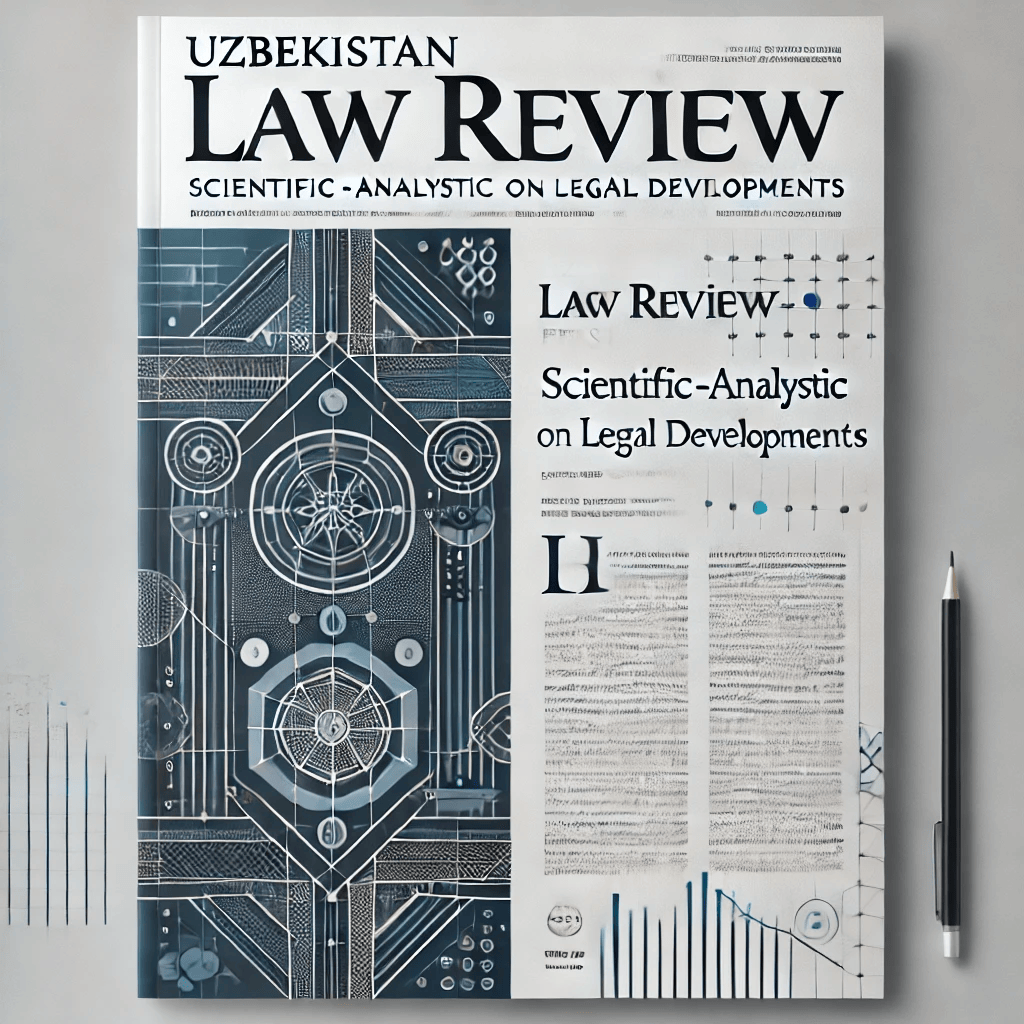DIGITAL FINANCIAL ASSETS AS AN OBJECT OF CIVIL RIGHTS
Keywords:
digital financial assets, cryptocurrencies, blockchain technology, civil law, legal regulation, smart contracts, property rights, cross-border transactions, decentralized finance, Markets in Crypto-Assets (MiCA), regulatory frameworks, Uzbekistan, Digital Uzbekistan 2030Abstract
This article examines the legal nature of digital financial assets (DFAs) as a novel category within the framework of civil rights. DFAs, including cryptocurrencies, tokens, and other blockchain-based instruments, challenge traditional legal concepts due to their decentralized, intangible, and programmable nature. The study identifies key legal issues, including ownership rights, enforceability of obligations, and jurisdictional conflicts in cross-border transactions. A comparative analysis of regulatory approaches in the European Union, the United States, Russia, and Uzbekistan highlights the lack of uniformity in DFA classification and treatment. Special attention is given to Uzbekistan’s progressive regulatory framework under the Digital Uzbekistan 2030 initiative. The research employs comparative-legal and systematic methods, supported by case studies and doctrinal analysis, to evaluate existing legislative and judicial practices. Findings reveal significant gaps in the regulation of DFAs, particularly regarding their integration into traditional legal systems. The article proposes practical recommendations for improving national legislation, developing international standards, and harmonizing regulatory approaches to ensure legal certainty and foster innovation.
This study contributes to the ongoing discourse on the intersection of law and technology, emphasizing the importance of adapting civil law frameworks to the evolving landscape of digital financial technologies. It highlights the potential of DFAs to revolutionize economic relationships while underscoring the need for robust legal mechanisms to address their unique challenges.
Downloads
References
1. European Union. (2023). Regulation (EU) 2023/1114 of the European Parliament and of the Council of 31 May 2023 on markets in crypto-assets, and amending Regulations (EU) No 1093/2010 and (EU) No 1095/2010 and Directives 2013/36/EU and (EU) 2019/1937. Official Journal of the European Union, L 150, 9 June 2023, pp. 40–205.
2. Financial Action Task Force (FATF). (2021). Updated Guidance for a Risk-Based Approach to Virtual Assets and Virtual Asset Service Providers. Paris: FATF.
3. Presidential Decree No. PP-3832 of the Republic of Uzbekistan. (2018). On Measures to Develop the Digital Economy and the Sphere of Crypto-Assets Turnover in the Republic of Uzbekistan. Adopted on 3 July 2018.
4. SEC v. Ripple Labs Inc., No. 20-10832 (U.S. District Court for the Southern District of New York, 2023).
5. AA v. Persons Unknown, [2019] EWHC 3556 (Comm).
6. Zetzsche, D. A., Buckley, R. P., & Arner, D. W. (2020). The Distributed Liability of Distributed Ledgers: Legal Risks of Blockchain. University of Illinois Law Review, 2020(4), 1377–1427.
7. Federal Law No. 259-FZ of the Russian Federation. (2021). On Digital Financial Assets and Digital Currency.
8. Bitfinex v. Wells Fargo, No. 17-cv-01882 (N.D. Cal. 2017).
9. SEC v. W.J. Howey Co., 328 U.S. 293 (1946).
10. Uniform Commercial Code (UCC) Amendments. (2022). Amendments to the UCC to Address Emerging Technologies.
11. International Organization of Securities Commissions (IOSCO). (2020). Issues, Risks and Regulatory Considerations Relating to Crypto-Asset Trading Platforms.
12. Financial Action Task Force (FATF). (2019). Guidance for a Risk-Based Approach to Virtual Assets and Virtual Asset Service Providers. Paris: FATF.
13. European Securities and Markets Authority (ESMA). (2023). Advice on Initial Coin Offerings and Crypto-Assets.
14. International Monetary Fund (IMF). (2021). Global Financial Stability Report: Navigating the Financial Challenges of the COVID-19 Pandemic.
15. World Bank. (2020). The Global Findex Database 2017: Measuring Financial Inclusion and the Fintech Revolution.
16. Nakamoto, S. (2008). Bitcoin: A Peer-to-Peer Electronic Cash System.
17. European Central Bank (ECB). (2019). Crypto-Assets: Implications for Financial Stability, Monetary Policy, and Payments and Market Infrastructures.
18. Basel Committee on Banking Supervision (BCBS). (2019). Designing a Prudential Treatment for Crypto-Assets.
19. International Organization of Securities Commissions (IOSCO). (2021). Global Stablecoin Initiatives: Regulatory and Supervisory Challenges.
20. Organisation for Economic Co-operation and Development (OECD). (2020). Taxing Virtual Currencies: An Overview of Tax Treatments and Emerging Tax Policy Issues.
21. United Nations Commission on International Trade Law (UNCITRAL). (2021). Legal Issues Related to the Digital Economy: Digital Assets and Private Law.
22. International Chamber of Commerce (ICC). (2020). The Impact of Blockchain Technology on Trade Finance: A Legal Perspective.
23. European Banking Authority (EBA). (2019). Report with Advice for the European Commission on Crypto-Assets.
24. Financial Stability Board (FSB). (2020). Regulation, Supervision and Oversight of “Global Stablecoin” Arrangements.
25. Bank for International Settlements (BIS). (2021). CBDCs: An Opportunity for the Monetary System.
26. International Swaps and Derivatives Association (ISDA). (2020). Legal Guidelines for Smart Derivatives Contracts: Introduction.
27. United Nations Conference on Trade and Development (UNCTAD). (2021). Digital Economy Report 2021: Cross-border Data Flows and Development.
28. World Economic Forum (WEF). (2020). Global Standards Mapping Initiative: An Overview of Blockchain Technical Standards.
29. International Telecommunication Union (ITU). (2019). Distributed Ledger Technology Standardization: A Comprehensive Approach.
30. International Bar Association (IBA). (2021). Legal Implications of Blockchain and Distributed Ledger Technology.
31. International Association for Trusted Blockchain Applications (INATBA). (2020). Recommendations for the Development of a European Blockchain Strategy.
32. United Nations Office on Drugs and Crime (UNODC). (2020). Cryptocurrencies and Money Laundering: Legal and Regulatory Challenges.
33. International Centre for Settlement of Investment Disputes (ICSID). (2021). Investment Arbitration and Blockchain Technology: Emerging Issues.
34. International Federation of Accountants (IFAC). (2020). Blockchain and the Future of Accountancy.
35. International Organization of Supreme Audit Institutions (INTOSAI). (2021). Auditing in the Digital Age: Challenges and Opportunities.
36. International Labour Organization (ILO). (2020). The Impact of Digitalization on the Labour Market: A Legal Perspective.
37. International Maritime Organization (IMO). (2019). Blockchain Applications in Shipping and Maritime Law.
38. International Civil Aviation Organization (ICAO). (2020). Blockchain Technology in Aviation: Legal and Regulatory Considerations.
39. International Atomic Energy Agency (IAEA). (2021). Blockchain Technology in Nuclear Safeguards: Opportunities and Challenges.







